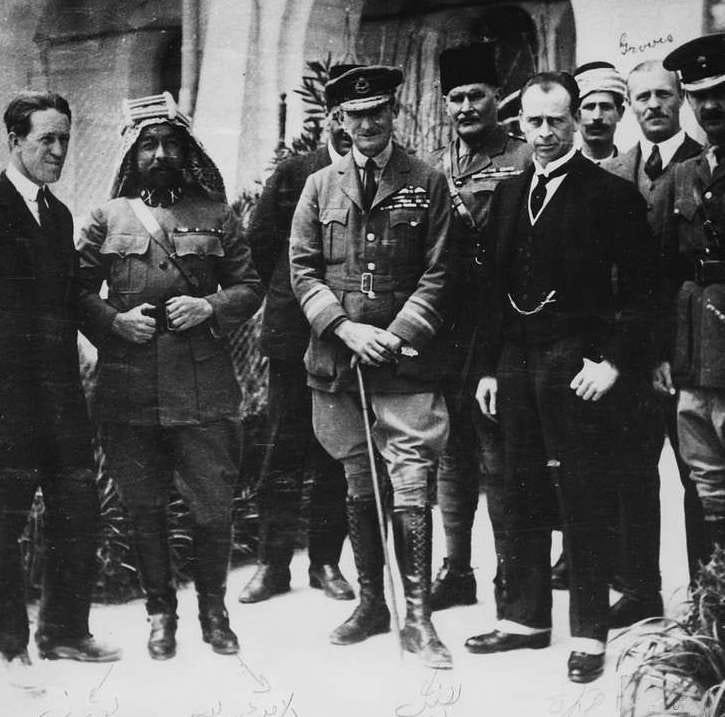How the world has instrumentalized the Israel-Palestine Conflict
From the Middle East to Eastern Europe, global players have always used the conflict for their own ends
Although it may come as a surprise to some, the Houthis in Yemen are not terrorizing the Red Sea to force a ceasefire in Gaza, and Iran isn’t bombing Syria and Iraq’s Kurdistan Region out of solidarity with Palestinians — not really, anyway. Both stand to benefit from asserting themselves in their respective battles paces, and are doing so as part of the broader Iran-backed “Axis of Resistance,” which also includes Hezbollah in Lebanon, Syria’s Assad regime, Shi’a groups in Iraq, as well as Hamas in Gaza. While nominally resisting Israel and its American backers in service of Palestinian liberation, the Palestinian cause has long merely been a rallying cry to justify these actors’ accumulation of power and wealth at the expense of societies across the Middle East.
None of this should be a shock for anyone who has had any exposure to Middle Eastern politics in the last fifty years, but having watched keyboard warriors emerge from the woodwork to defend the Houthis as Palestine’s liberators over the last two weeks, I may need to lower my expectations. Nevertheless, it’s crucial to remember that Iran and Yemen’s Houthis are far from the only actors who have used the Israel-Palestine Conflict to pursue their own regional and domestic agendas with little interest in the wellbeing of Israelis or Palestinians themselves. Indeed, the entire history of the conflict, since its roots in the early 20th century, is the history of foreign actors across Europe, the Middle East, and beyond leveraging the conflict to suit their own ends. This is a fact that is often lost on casual observers, who, while rightly outraged at the atrocities committed in Gaza, southern Israel, or elsewhere, miss the much broader political context they are engaging with.
For Iran and its network of allies, the Palestinian cause has been one of several driving factors that it has used to justify its regional expansionism ever since the 1979 Islamist Revolution. Iran’s clerical class has long connected Zionism to the history of American and European imperialism in the Middle East — in their rhetoric, Israel is merely a sidekick to the “Great Satan” that is the United States. But as it has cultivated its Axis of Resistance across the region, Iran and its allies have fought other Middle Easterners much more frequently than they’ve ever engaged with Israel itself — pro-Iran militias and armies in Iraq, Syria, and to a lesser degree in Lebanon have cracked down on local communities that opposed their supremacy throughout the 2010s, most viciously during the Syrian Civil War.
Of course, from Iran’s perspective, the desire to cement its regional sphere of influence is understandable. As the lone Shi’i power in the Middle East, the desire to counter both radical Islamist groups like ISIS and Sunni powerhouses like the Saudis is ever-present. Saddam Hussein’s invasion of Iran in 1980 drove this point home for the ayatollahs, and taught Tehran the importance of keeping both its Iraqi neighbor and other threats across the region in line. Nevertheless, mistaking this self-interested agenda for an earnest concern with Palestinians is misguided, to put it lightly.

Closer to home for Israelis and Palestinians, the Arab world has been intimately connected to the conflict since its earliest days for obvious reasons. Yet in parallel to the clear self-identification and solidarity that their citizens felt toward the Palestinian struggle, actors like Egypt’s Gamal Adbel Nasser and Syria’s Hafez al-Assad have used the conflict to try to regain territory lost to Israel and to bolster their own personal brands on the Arab street. At the same time though, while espousing a decades-long commitment to Palestinian liberation, governments in Syria and Lebanon especially have made it more difficult for Palestinians in their own territory to work, live, and function as part of regular society outside of segregated camps and neighborhoods. Ostensibly, the justification for this is that integrating Palestinian refugees into host countries would negate their Right of Return to Palestine — a core goal for Palestinians living outside their homeland. But the reality this approach has created is one in which Arab countries and non-state actors like Hezbollah talk tough about Israel to retain their soft power while leaving the actual Palestinians they are fighting for in the dust.
Further afield, this story continues in Europe, whose empires played a key role in shaping the conflict from its earliest days. Through deception, false promises, and careful brinkmanship that played Jews and Palestinians off of each other for decades, Britain instrumentalized both the Zionist cause and the struggle for Arab independence to serve whatever their imperial agenda was at any given time. Ultimately, the British betrayed the Palestinians and handed their fate over the fledgling United Nations in 1948 shortly before Israel’s unilateral declaration of independence. France, the other imperial power in the Middle East, gave significant diplomatic and military support to Israel after World War II, not out of love for Jews and Zionism but due to its desire to counter Arab nationalism, which was undermining its colonial regime in Algeria. Upon Algeria’s independence, France largely abandoned Israel and threw its support behind Arab states, especially following the Six-Day War.

The Soviet Union, in spite of its rhetoric about opposing imperialism and championing the rights of oppressed people around the world, was indistinguishable from Western European powers in its approach to the conflict, and used the Palestinian issue not only to expand its sphere of influence in the Middle East, but to carry out domestic political crackdowns against Jews and political undesirables. During WWII, the USSR initially saw the future state of Israel as a possible socialist ally that it could use to propagate the Communist revolution, and supported it with such ulterior motives in mind.
However, very quickly, as Israel emerged as an ally of the capitalist West, the Soviets changed course, and supported the Palestinians and their Arab allies as a bulwark against American influence in the region. Much like US though, the Soviets also propped up undemocratic regimes in Egypt, Syria, and beyond while pushing an anti-Zionist message in pursuit of their Cold War agenda. The USSR’s anti-Zionism was itself a double-edged sword — opposition to Israel became equated with opposition to Judaism itself, and by the 1960s, the Soviet leadership embarked on large-scale anti-Semitic campaigns that barred many Jews from participation in public life.
Such campaigns were mirrored in other parts of the Soviet sphere — states across the Communist Bloc cut ties with Israel after the 1967 Six-Day War, and in Poland, the Soviet-backed puppet government used the Israeli victory to crack down on political discontent among Poles and encouraged the expulsion of thousands of Jews from the country. Having hosted the world’s largest Jewish community prior to the Holocaust, Poland had long felt like it had skin in the game when it came to the conflict between the Arabs and the Israelis — for some Polish anti-communists, the Six-Day War showcased the prowess of “our” Jews over the “Soviet Arabs.”
Polish actors had in fact been involved in supporting the Jewish presence in British Palestine even during the interwar years — in the late 1930s, the Polish government provided arms and training to the Haganah, a Jewish militia in Palestine, and to the Irgun, a more radical paramilitary group accused of carrying out terrorist acts against Palestinians. Although the Polish state had taken an inclusive approach to its Jewish population throughout the 1920s, by the late 1930s, a new slate of leaders was motivated to support Zionism not out of solidarity with Jews, but out of a desire to oust them from Polish territory — once again instrumentalizing and exacerbating the conflict to suit domestic political goals.

Today, the United States is by far Israel’s most important backer, having replaced France as the primary counterweight to the Soviet Union’s support for Palestine and the Arab world. Despite long-running support for Zionism among the American population for decades, the US interest in Israel continues to fit into the same pattern as its predecessors, seeing Israel as a geopolitical asset above all else.
In this sense, nothing has truly changed since the Cold War, when actors around the world viewed the Israeli-Palestinian Conflict through the prism of their own affairs. Today’s activists rightly understand America’s role in perpetuating the conflict at Palestinians’ expense, but they fail to see the forest for the trees — that the conflict has long been co-opted by self-interested powers on both sides who have used the fates of Israelis and Palestinians as leverage in the great power competitions of the last hundred years. Understanding this is critical if a just and lasting peace is ever to be achieved.




